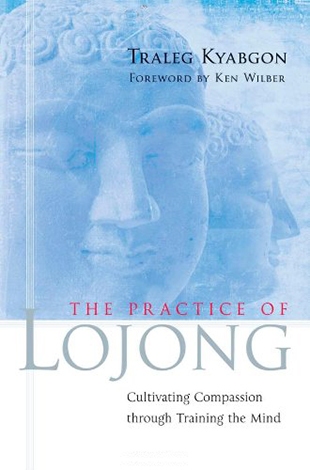For many centuries, Indian and Tibetan Buddhists have turned to lojong (mind-training slogans) to assist them in the practices of compassion, equanimity, lovingkindness, and joy for others. We have reviewed books by Trungpa Rinpoche and Pema Chodron on these pithy sayings. In this volume, Traleg Kyabgon, director of Kagyu E-Vam Buddhist Institute in Melbourne, Australia, presents his translations and commentary on the mind-training slogans. He has taught for 20 years in the West and knows about the special challenges men and women face in how we use our thoughts and emotions.
In the introduction to the book, Kyabgon states:
"The lojong approach boils down to a fundamental question: why do we suffer? Why do we have so many negative emotions and delusory mental states? From the Buddhist point of view, the cause of these problems is our egoistic perception, a deluded condition that inevitably leads to the distorted thinking and disturbed emotions that keep us from a clear approach to anything, including ourselves."
A central practice in the lojong teachings is compassion. Through it we can truly connect with others and effect our spiritual transformation. The mental training of tonglen, a compassion meditation practice, enables us to become more fearless and less wrapped up in our own concerns. Kyabgon says: "Lojong is a way of reconditioning the mind and gradually overcoming our negative tendencies, without deliberately trying to suppress them."
One lesson is to never give up in the face of adversity. Everything is usable in the transformation of our mental states. Kyabygon offers helpful explanations of the notion of merit, confession, and the power of aspiration. He offers the following as an example of how to begin each spiritual and worldly activity:
"May what I'm about to do yield beneficial results. May it give me the power to be of real benefit to others. May it help me overcome my defilements and delusions. May it clear away the obstacles on the path. May it propel me to the future state of enlightenment."
